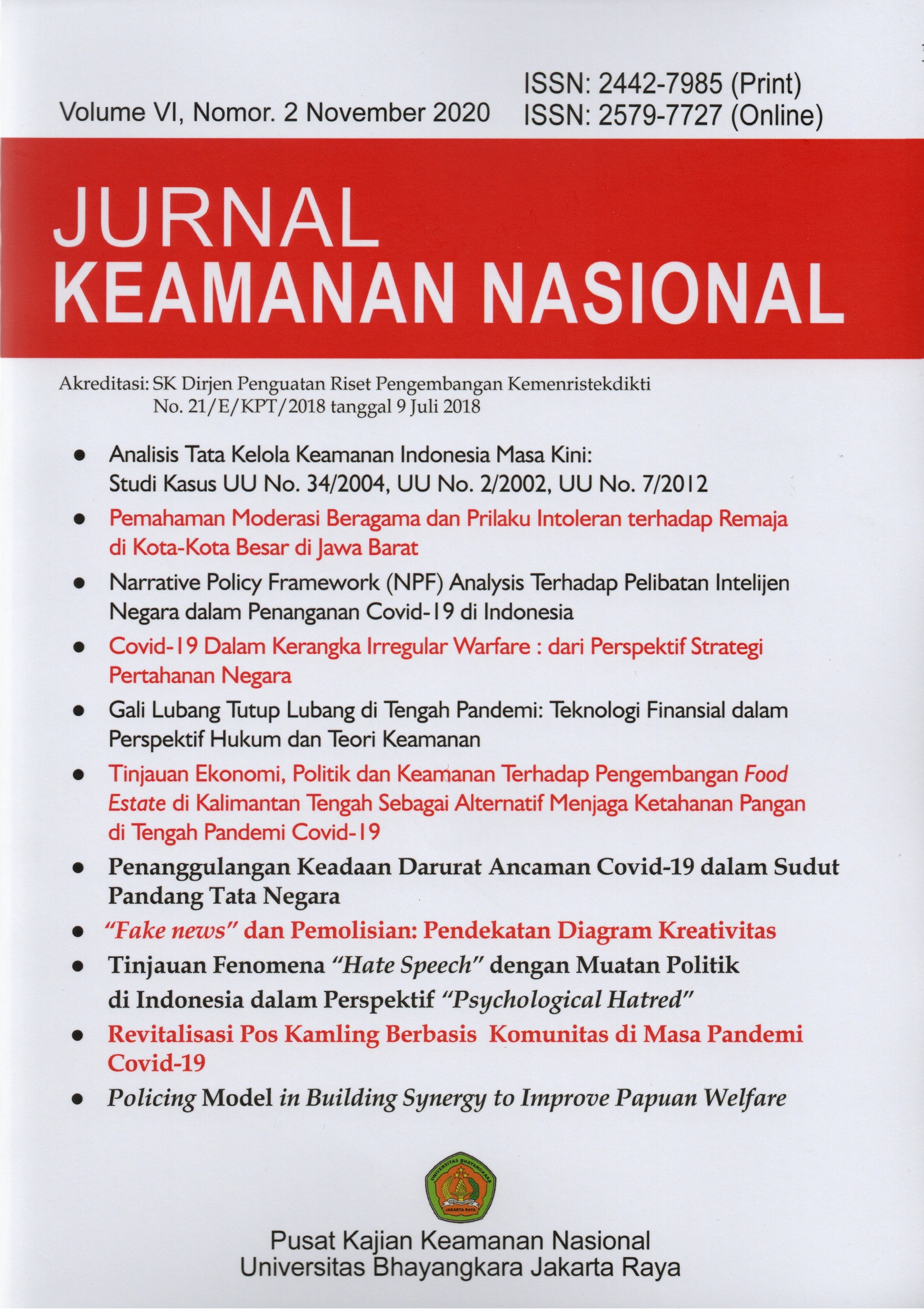Tinjauan Fenomena “Hate Speech” dengan Muatan Politik di Indonesia dalam Perspektif “Psychological Hatred”
Keywords:
Social Media, Hate Speech, Election, PsychologicalAbstract
The birth of social media in Indonesia has positive and negative benefits in the field of information. The problem that arises because of technological developments, especially social media, one of which is hate speech. The “Election” phenomenon of both the President and the Regional Head dragged social media into a stream of negative campaigns and became a lighter for the emergence of “hate speech” in social media. Historically “hate speech” has long appeared and is accompanied by events of violence, abuse, and mass genocide in certain groups of people and communities. This becomes a serious problem if not handled seriously because it is basically the cause of the conflict and the
disintegration of the nation. Psychological Studies tries to parse the common thread of the emergence of “hate speech”, so that in the future there are potential ideas in unraveling problems related to hate speech, especially in the field of education.
Downloads

Downloads
Published
Issue
Section
License
Please read and understand the copyright terms for submissions to this journal.
Copyright Notice
The Jurnal Keamanan Nasional is under the Creative Commons Attribution 4.0 International (CC-BY 4.0) License, according to which:
1) Authors retain copyright and grant the journal the right to first publication, with the work simultaneously licensed under the Creative Commons Attribution (CC-BY 4.0) that allows the sharing of articles published with the acknowledgement of authorship and the initial publication in this journal.
2) The authors are authorized to make additional contracts separately for distribution of the version of the work published in this journal (for example, publication in an institutional repository or as a chapter of the book), as long as there is recognition of authorship and initial publication in this journal.
3) Authors are authorized and encouraged to publish and distribute their work online (for example, in institutional repositories or on their personal pages) at any time before or during the editorial process, as it increases the impact and reference of the published work.












